Fijian Cuisine
Fijian cuisine is an island Pacific cuisine featuring abundant seafood, coconut, earth oven cooking, and more. Fiji was settled long ago by Austronesian seafarers, and Austronesian culture remains a dominant influence on Fijian cuisine. Fiji’s island geography and tropical climate also contribute strongly.
Breadfruit and taro are important traditional foods that can be traced back to early settlers of Fiji. Later in Fiji’s history, numerous workers from India arrived to work on sugar cane plantations, bringing their own influence with them. Curries and spices are some of their contributions.
Kava(yaqona) is quite popular in Fiji and drinking kava with friends is an important social activity. The drink kava is made from powdered kava leaf and a little water.
Ingredients
taro(dalo): edible corms as well as leaves are used.
cassava(tavioka): has become popular in recent decades
breadfruit(uto)
cooking banana(vudi): not the same as banana or plantain but has qualities of both
ota: a native fern from the forests of Fiji
sugar cane
duruka: a native sort of flower bud from a certain type of cane shoots
bele: a native plant similar to hibiscus with nutritious leaves
tubua: native wild amaranth
water spinach(karamua)
kava(yaqona): leaves are a natural mild stimulant
garlic, shallot or onion, ginger
chili
lime
curry leaf: brought to Fiji by Indian immigrants
coconut
coconut cream(lolo): used extensively in Fijian cuisine
kora: fermented coconut paste made by soaking coconut cream in sea water for days or even weeks; often accompanies fresh sea grapes or seafood
sea grape(nama): seaweed delicacy often enjoyed fresh.
freshwater clam(kai)
sea urchin
prawn(ura), lobster, crab
octopus(kuita)
pacific or narrow-barred spanish mackerel(walu)
sea salt or sometimes sea water can be used for seasoning
Dishes
- lovo: meat or vegetables baked or wrapped in leaves and steamed in an earth oven
- palusami: meat and coconut cream wrapped in taro leaf and roasted
- kovu: walu or other ingredient marinated and cooked in banana leaf
- rourou: taro leaves cooked in coconut cream
- surawa: coconut curry, typically with fish
- baigan valo: stuffed eggplant cooked in coconut cream
- coconut fish(ika lolo): fish cooked in coconut cream
- duruka lolo: duruka cooked in coconut cream
- vakalolo: steamed main ingredient, such as octopus or prawn or fish, with coconut cream and sometimes spices
- vudi vakasoso: ripe cooking banana cooked in coconut cream
- kokoda: raw fish marinated in citrus juice and coconut cream
- yaqona: kava drink
- valavalava: sweet cassava cake
- purini: steamed pudding cake
Related Links
Recipes
-
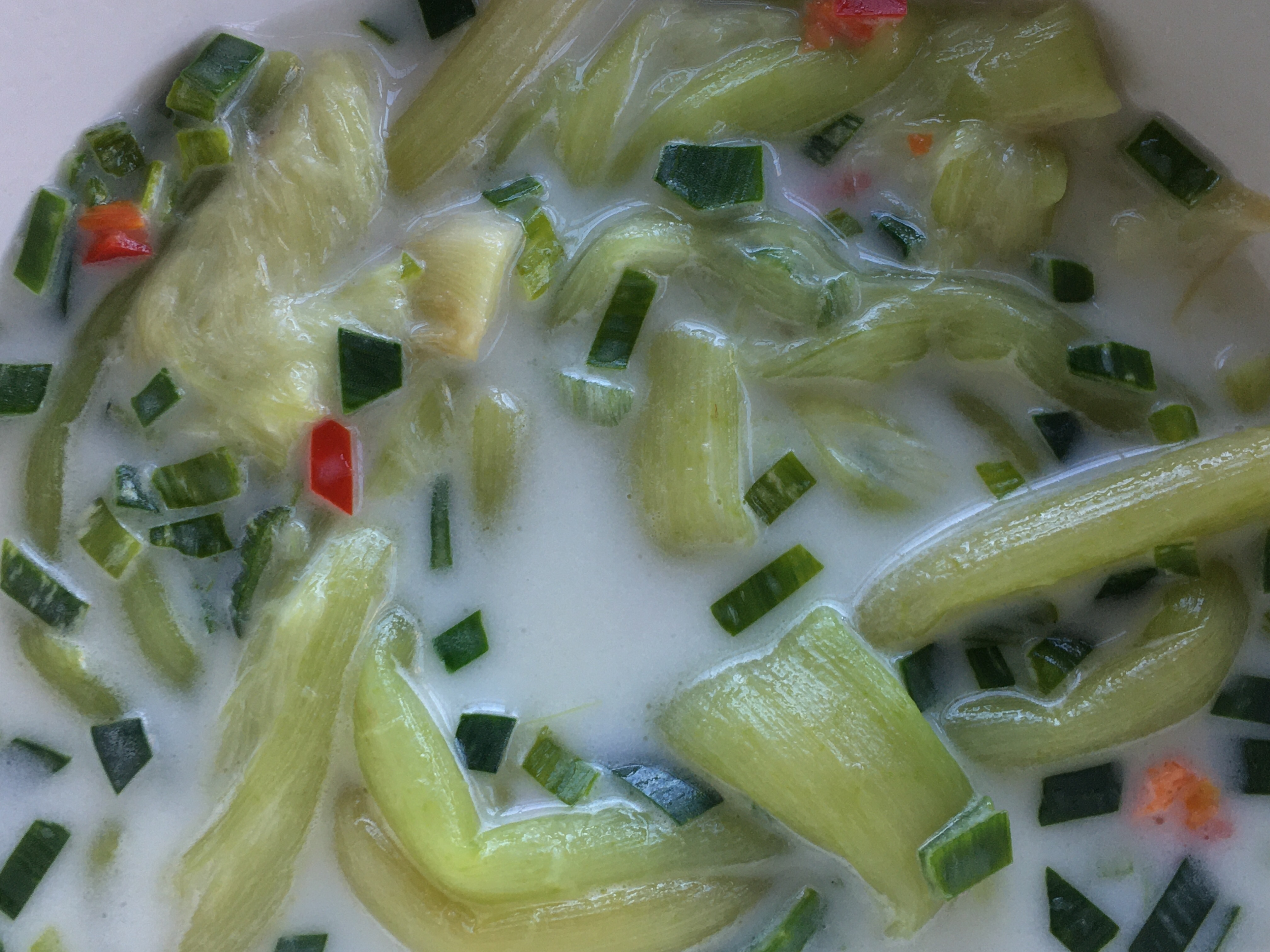
Baseisei
Baseisei is a Fijian dish made from young taro stem with coconut cream, chili, and citrus. The thin stems of […]
-
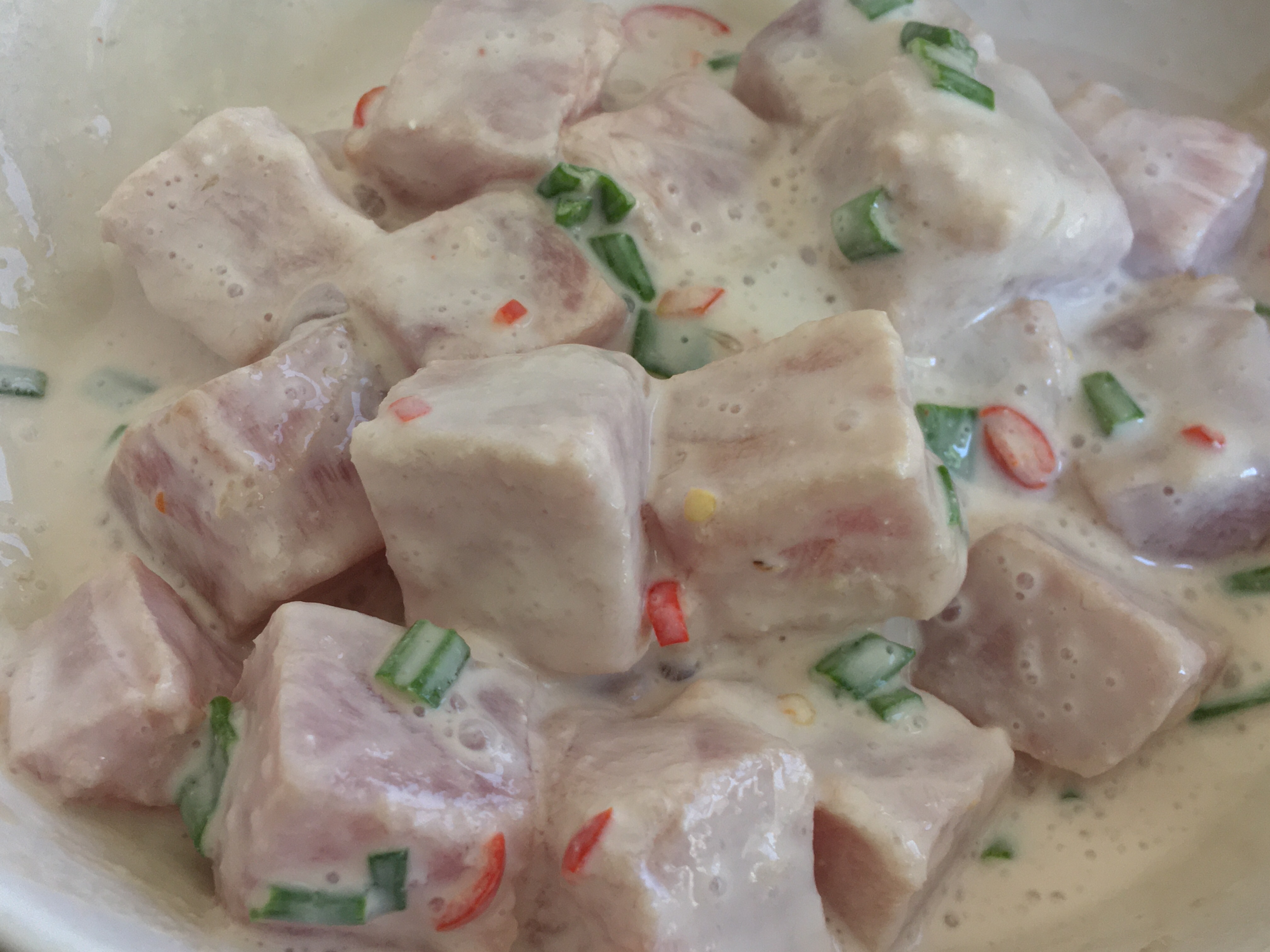
Kokoda
Kokoda is a traditional Fijian dish of marinated raw fish. Historically, the dish was often made with narrow-banded Spanish mackerel(walu) […]
-
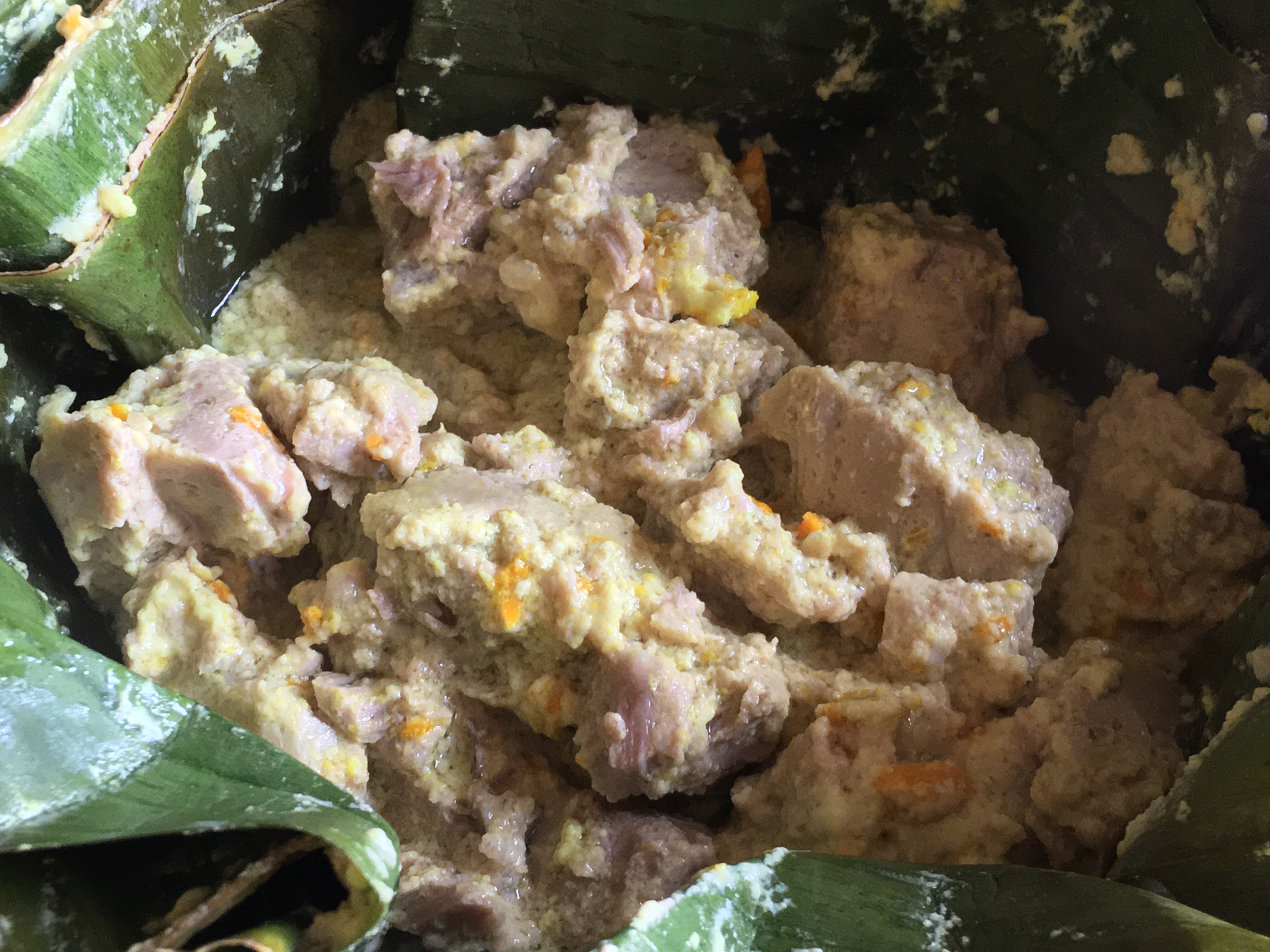
Kovu Walu
Kovu is a Fijian dish of seasoned fish or seafood wrapped in banana leaf and roasted, traditionally in a pit […]
-
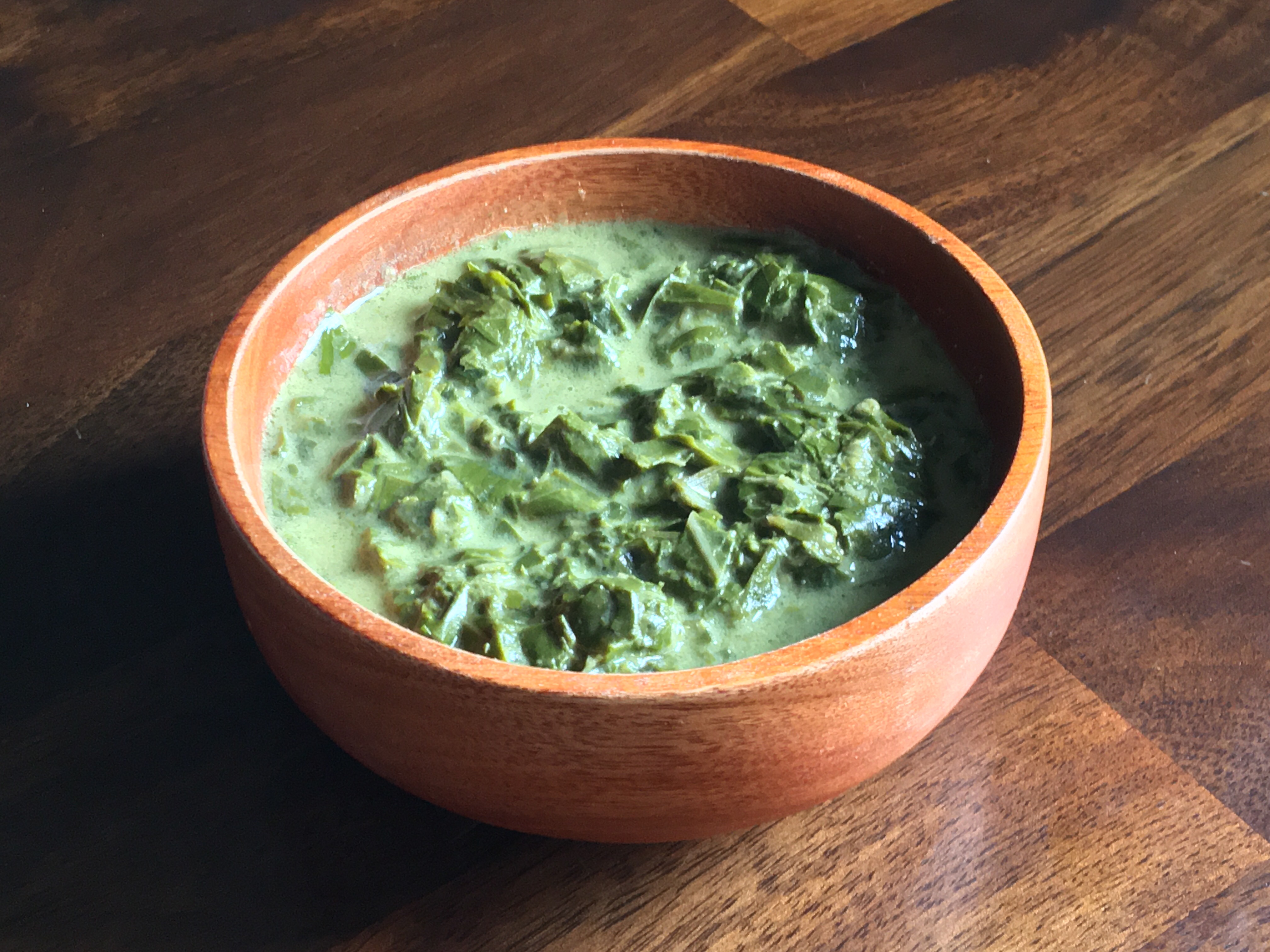
Rourou
Rourou is a traditional Fijian dish of young taro leaves stewed in coconut cream. The dish is named after the […]
-
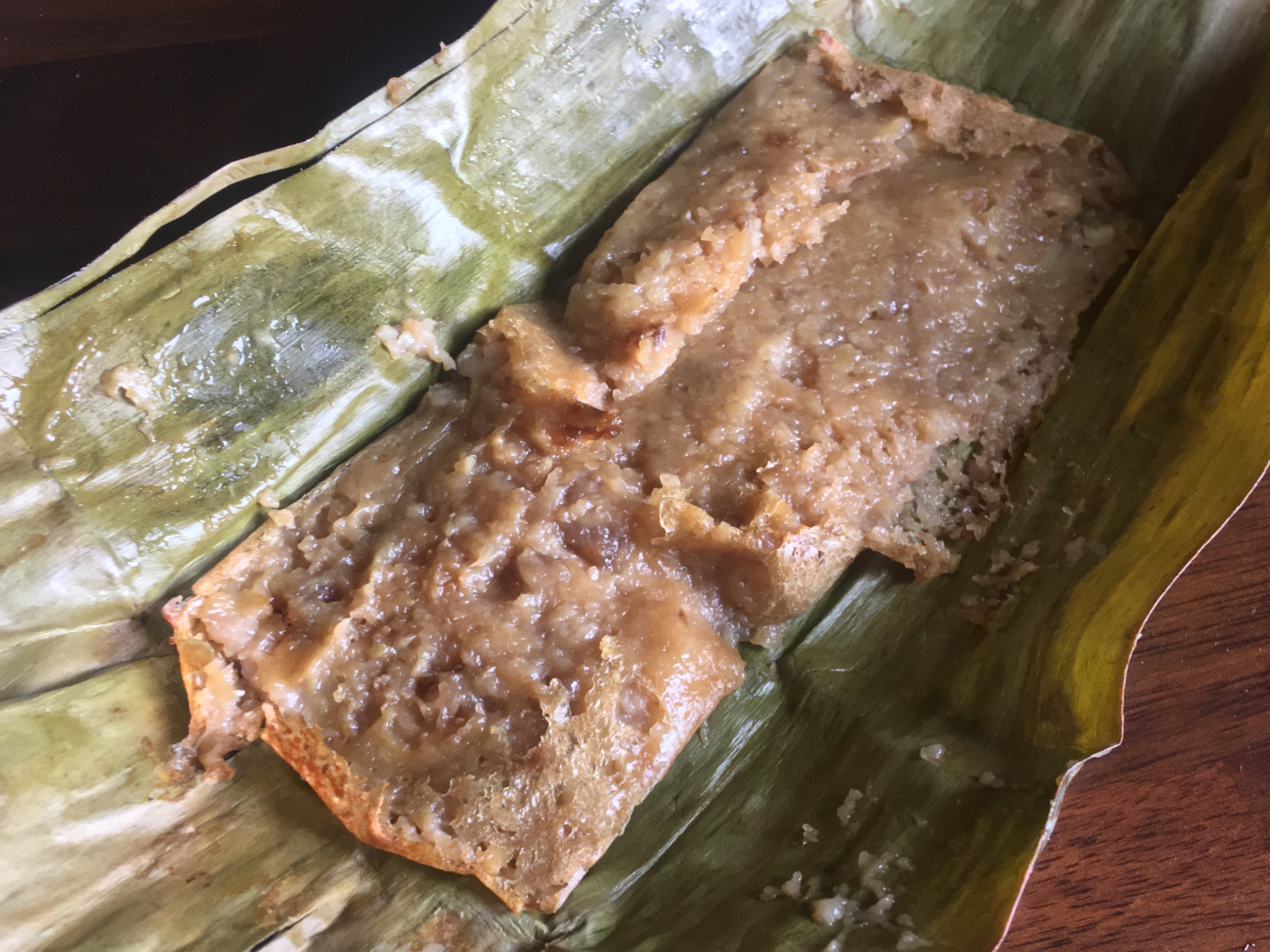
Vakalolo
Vakalolo is a Fijian dish of grated white yam or another tuber mixed with coconut. Local types of yam or […]